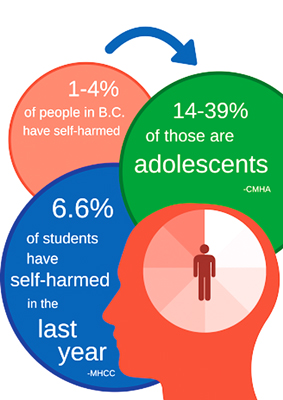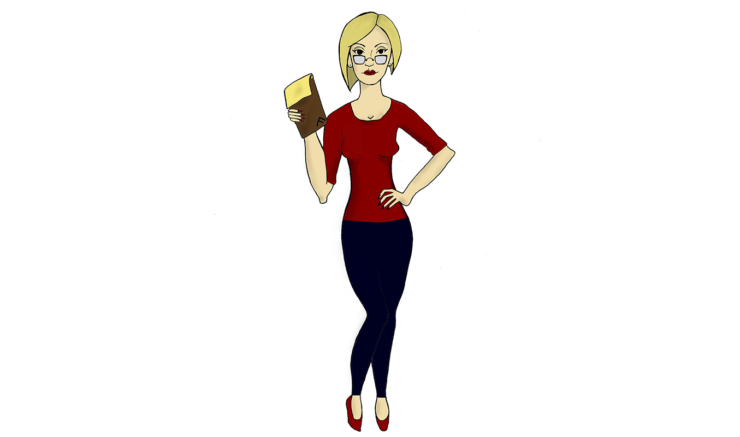More than 6 per cent of post-secondary students self-harm: report
Graphic by Alexis Stockford/The Omega
KAMLOOPS, B.C. (CUP) — Mental health professionals are alarmed about self-harm on campus after a recent report revealed that 6.6 per cent of post-secondary students had intentionally hurt themselves in the last year, and up to 20 per cent had done so at some point in their lives.
“The statistic is unsettling,” said Cliff Robinson, head of counselling at Thompson Rivers University. “But the thing that’s most sad for me is that for some people it’s easier to cut than it is to talk about their own mental health condition, and that speaks to stigma about mental health and mental illness.”
Released by the Mental Health Commission of Canada (MHCC) last week, the report measured 13 indicators of Canadian mental health. Self-harm among post-secondary students was one of four indicators marked red for “significant concerns.”
In many cases, Robinson said, students who self-harm began in high school and the behaviour carried over when they entered university. The Canadian Mental Health Association has estimated one to four per cent of all people in British Columbia self-harm and 14 to 39 per cent of those are adolescents.
Read the original story from the Omega
“It’s generally a period of life where emotions are high,” said Kerri McLean, manager for Mental Health and Substance Use Services.
“They’re intense … I think as a result of that individuals aren’t quite sure or don’t have the healthy coping strategies that older adults may have if they’re in a more secure, stable environment.”
Robinson said TRU counselling does see a number of self-harm cases, but not enough to be consistent with the MHCC report. For him, that raises concern that there may be students that are self-harming but have not reached out to counselling.
According to Robinson, only a small percentage of self-harm cases are actually suicidal. People may also self-harm as a way to deal with personal upheaval, anxiety, depression, or as a coping mechanism for emotional distress. He also said not everyone who admits to self-harm is hospitalized.
“We’re not going to overreact on your behalf,” Robinson said. “Our job is to figure out what it’s going to take for you to deal with whatever mental health thing you’ve got going on.”
TRU is one of the few campuses to have a regional health worker attached to the counselling department. McLean said in cases where intervention might be needed, the worker can then streamline the referral to British Columbia’s health authority.
Robinson said he looks forward to the full report in April, but knows it will highlight how much work is ahead for mental health professionals like him.





